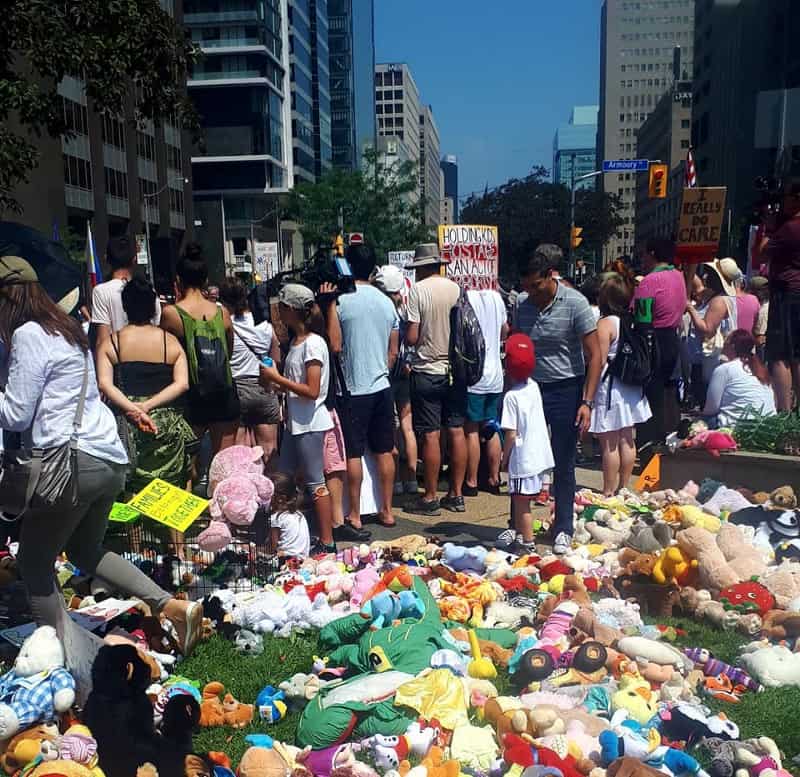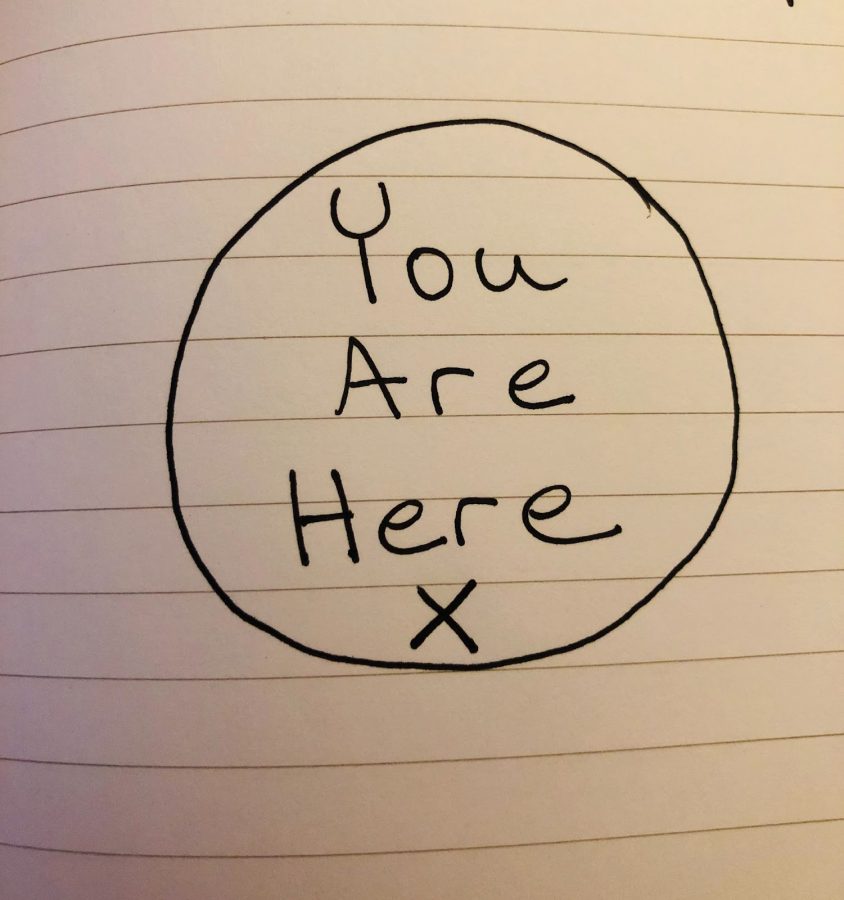A manifesto for an internationalist permaculture movement
By Becky Ellis

Migration, the movement of people over landscapes, is, arguably, one of the defining characteristics of our species. Humans have moved over landscapes in search of food and other resources since before we were a species. And yet in our deeply capitalist society, the movement of most humans is severely restricted and criminalized. Recently, there has been an increase in racist xenophobia throughout Europe, Canada, Australia, and the United States including the rise of far-right hate groups, anti-immigrant nationalist political parties, and governments who criminalize migrants. In the United States, Trump has deepened his hateful anti-immigrant rhetoric with policies aimed to terrorize refugees and migrants, especially his policy of separating children from their parents. But it didn’t start with Trump. Anti-migrant rhetoric and practices has been a defining part of colonialist and settler-colonialist countries since their inception, along with genocidal practices towards colonized people. The borders of nation-states were created through colonialist invasions and wars. They are not based on real ethnic or cultural divisions between people; they are political borders, drawn and policed by those with power. A rejection of colonialism and war must also mean a rejection of the legitimacy of political borders.
Permaculture is the art and science of creating human landscapes that mimic healthy, balanced ecosystems. Migration of animals and plants is a normal part of dynamic ecosystems. Air, water, and soil move over landscapes. No species, other than humans, pays attention to political borders. When viewed through an ecological lens, political borders are completely arbitrary and can lead to some ridiculous ways of categorizing ecological regions. For example, my landscape, nestled in the southern part of the Great Lakes, has more in common with landscapes in North-eastern Michigan than other areas of Southern Ontario. If we want to think regionally about our landscapes it makes more sense to think ecologically in terms of watersheds or other natural markers than political borders.
Human migration is older than modern humans as it was likely a defining feature of our pre-Homo sapien ancestors. Indeed, for most of humanity, humans were at least partly nomadic, travelling in search of food and other resources. It is only in the past 12 000 or so years that some humans have formed permanent, year-round settlements. Many political borders and nation-states have been in existence for less than 200 years. The policing of borders only benefits people with power and wealth, who have free movement around the world to oppress, exploit, and destroy. There is nothing natural or divine about the political borders of modern countries.
Researchers who study climate change and migration overwhelmingly believe that migration will not only continue but will intensify as increasing numbers of people face extreme weather, desertification, flooding, and food shortages. The people who will suffer the most intensely are people of the Global South who (with the exception of Australia and a couple other settler countries) have contributed very little to causing climate change. It is truly unjust that people are going to suffer in conditions they have not created and then are criminalized when they try to escape those conditions. The rights of migrants will be one of the most important issues in the next decade and everyone committed to an ecologically and socially just world must contribute to defending those rights.
For these reasons (and more!) the permaculture movement should not just be an international movement it should an internationalist one that explicitly rejects nationalism especially of the former colonialist and current settler colonialist countries. Permaculturalists should be part of imagining and building a world without political borders; a world that is truly committed to decolonization, peace, and justice.
Five important steps for supporting migrant rights
Please note that this is mostly aimed at people of European descent in settler-colonialist and former colonialist countries.
1. Reject the myths of nationalism. I live in a settler colonialist country and the stories about my country’s history and development are largely myths created to hide the reality that my country was built on colonialism, slavery, and worker exploitation. When you celebrate these myths you are also supporting the power structures they uphold. You do not have to identify with the ruling class of the country to which you hold a passport. You can choose instead to identify with people all over the world, especially those who are also struggling the make the world a more just place. Rejecting the myths of nationalism also means rejecting the symbols of nationalism (flags, anthems, holidays, etc). Need a new holiday? How about Beltane/May Day!
2. Openly support the right of humans to migrate. As mentioned above, migration is a defining characteristic of humanity (and other non-human animals). Xenophobes try to claim that political borders are natural, static, and permanent aspect of human social organization. This idea is not upheld by anthropology, history, or geography. It is simply a made-up idea to uphold systems of oppression.
3. Recognize the sociopolitical and ecological factors that push and pull people to migrate. Forced migration is incredibly traumatic. Some people migrate by choice but many are forced to move by extreme poverty, war, violence, and ecological devastation, all of which are caused by a capitalist and colonialist economic system.
4. Acknowledge that the policing of borders is linked to colonialism and slavery. The wealth of colonialist countries, such as the countries of the Western Europe, was largely created through the exploitation and oppression of people in the regions they invaded, the enslavement of African and Indigenous people, and the plunder of resources, both human-created and natural. In settler-colonial countries like Canada, the United States, and Australia, land was stolen from Indigenous people and given to European settlers who then closed borders to others from around the world, or opened borders only to exploit the labour of workers. If you come from a European background, you cannot engage in decolonization in any real or meaningful way if you do not support the rights of migrant and refugees. If you give legitimacy to the political borders of your country, you give legitimacy to colonialism.
5. Act in solidarity with migrants. Attend and organize protests, openly defend migrant rights, and support organizations that advocate for migrants and refugees. There are so many ways to get involved. There are activist groups right now struggling against racist and xenophobic laws and policies. There are anti-racist groups countering racism and xenophobia in the streets. There are organizations defending the rights of migrant workers including farm workers and caregivers. There are organizations providing comfort and resources to newly arrived migrants. Some work for refugees is being even done by permaculture people including permaculture teacher and author Rosemary Morrow.

Demonstration against family separation, June 30 2018 in Toronto. Both photos taken by Rhonda Sussman and used with permission.
The work of permaculture is the work of building a better world, collectively. Another world, one that is socially just and ecologically regenerative, can only be built through grassroots movements from below. Although many of these struggles will be rooted in a local place, movements must be internationalist in spirit. In a world of global capitalism that has triggered global humanitarian and ecological crises, our movements must rooted in an ethic of international solidarity and struggle. Political borders only serve to divide everyday people and prevent us from building the world we know not only is but must be possible. The time is now to begin building an internationalist permaculture movement that defends the rights of migrants and refugees, supports struggles against colonialism, and aligns with movements for climate justice.
Permies of the world unite! We have a socially just, ecologically regenerative world to create (collectvely, with others)!
Originally published at permacultureforthepeople.org on July 4, 2018.
Both photos were taken at the March Against Family Separation in Toronto on June 30, 2018 by Rhonda Sussman and used with permission.



